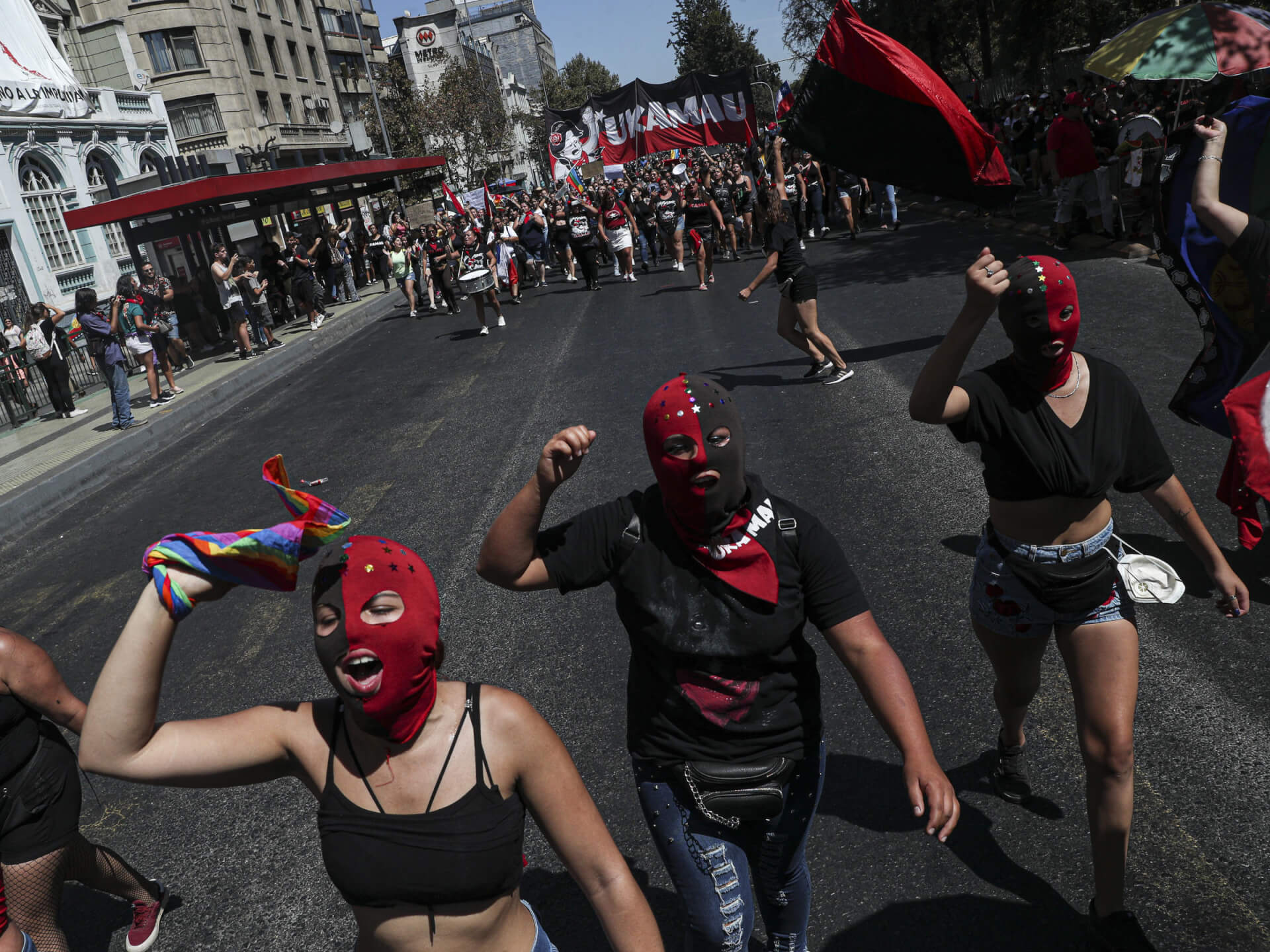This year marked the 109th celebration of International Women’s Day. The campaign theme of IWD 2020 was #EachforEqual, while that of the United Nations was 'I am Generation Equality'. The origins of the day are rooted in American labour movement of 1908, when 15,000 women protested in New York City for voting rights and better working conditions. On February 28, 1909, the US observed its first Women’s Day; in 1913, the date was shifted to March 8. In 1975, the United Nations marked March 8 as International Women’s Day, making it a global event.
In this article, we take a brief look around the world to shed light on some of the women's marches that took place this past weekend.
Pakistan
The march was organized by the women’s rights organizations Women’s Action Forum, Women’s Democratic Front, and Hum Aurtein. This year marked the third successive year of Aurat March, and the theme was 'Mera Jism, Meri Marzi', meaning 'my body, my choice'. Women marched against exploitative patriarchal structures and control over economic resources, rights to their bodies, sexual violence, forced religious conversions, and objectification of women in media.
As per the Pakistan Demographic and Health Survey, 2012-13, around 32% of the country's women report experiencing some form of physical violence.
Maulana Fazl ur Rehman, the leader of the right-wing religious party Jamiat Ulema-e-Islam, asked for the marches to be stopped, stating that it was against the cultural and social norms of the country.
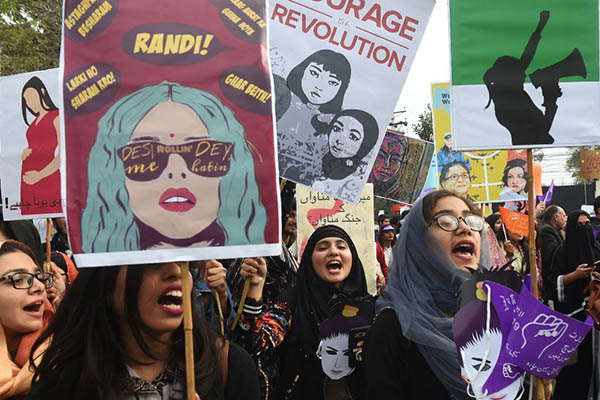
Iraq
In Nineveh Plains, initiated by the Peace and Freedom Organization and supported by the Dutch NGO Pax, a religiously diverse group of women launched a new magazine named 'Women of Nineveh'. The region is enduring a period of protracted conflict and instability, and women have faced the brunt of numerous atrocities, particularly under the Islamic State.
The magazine aims to raise awareness of women's issues and engender understanding among women from different religions and sects, with a focus on fighting ISIS extremism. Rasha Wahab, one of the founders of the magazine, stated that the “magazine would show women as they are–not as IS saw them. IS taught people that no one can see a woman without a cover, through this magazine, people can see it is normal for women to not cover”.
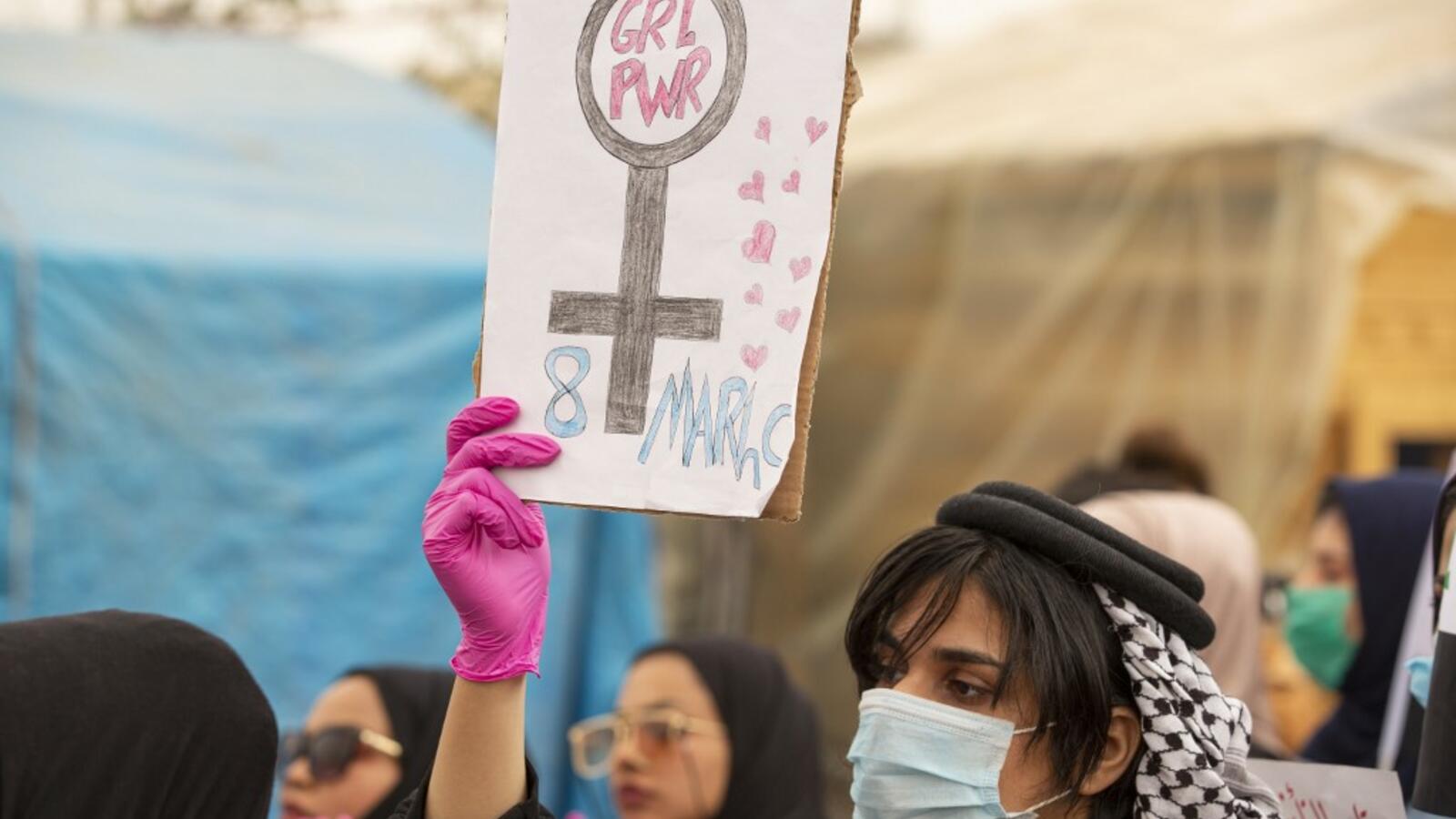
The Philippines
In Manila, thousands of women took to the streets to protest against President Rodrigo Duterte alleged misogyny. They marched towards the Malacanang presidential palace, chanting against the president, who has repeatedly made jokes about rape and sexual violence. As per reports, there is a 153% increase in rape cases from the decade Duterte was elected president, with one woman or child raped every hour.
The march ran concurrent to an exhibition in which the clothes worn by women and girls when they were abused were displayed. The exhibition was backed by the United Nations Population Fund and aimed to challenge the “idea that women’s appearance and behavior are to blame when they assaulted”.
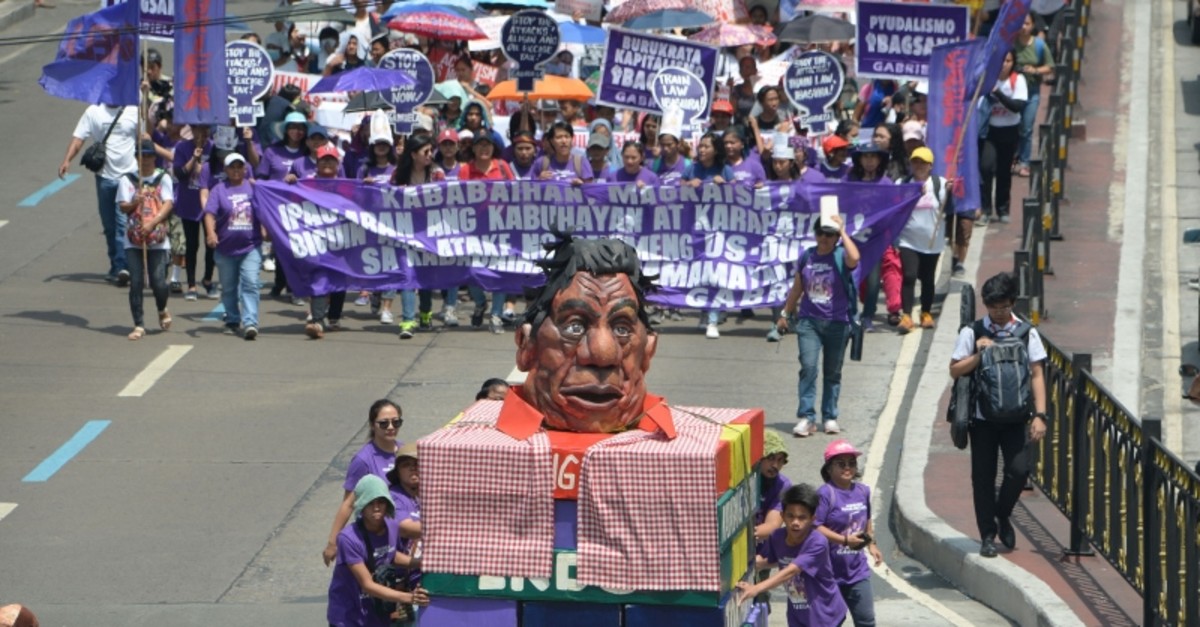
Turkey
Female asylum seekers demonstrated at the Turkish border, demanding to be let into the EU. Several gathered at Pazarkule border crossing between Turkey and Greece with placards reading “Don’t Kill Us — We Are Human”.
Turkish women also called for legal reforms against domestic violence, due to which at least 474 women were murdered by their spouses in 2019. They were blocked by the police and local officers, who closed down the streets leading to the city’s main square.
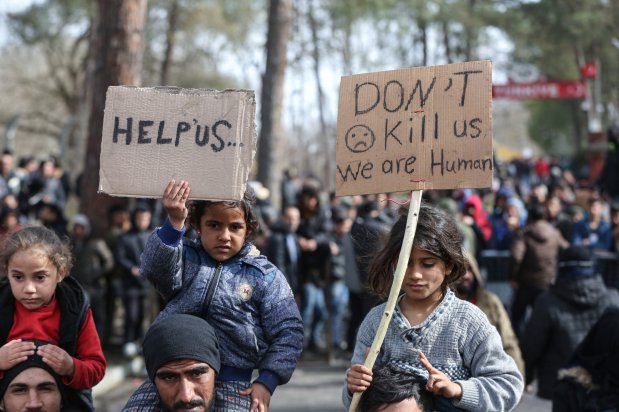
Chile
Chile witnessed one of the world's largest demonstrations, with the national police estimating a crowd of nearly 125,000 in the nation's capital, Santiago, and around 35,000 in other cities. Las Teis, a Chilean feminist collective, choreographed a chant against institutionalized rape culture, labeled 'A Rapist in Your Path'. It was reprised in several countries, including Brazil, France and Turkey. The chant made references to the sexual violence by Carabineros police against women in Chile. The demonstration was part of a two-day nationwide strike across Chile, wherein women are demanding access to abortion, and an end to violence against women and state repression. Thousands of women wore green scarves in solidarity with their Argentinian counterparts, who are also fighting to abortion rights. Police used teargas to disperse the crowd.
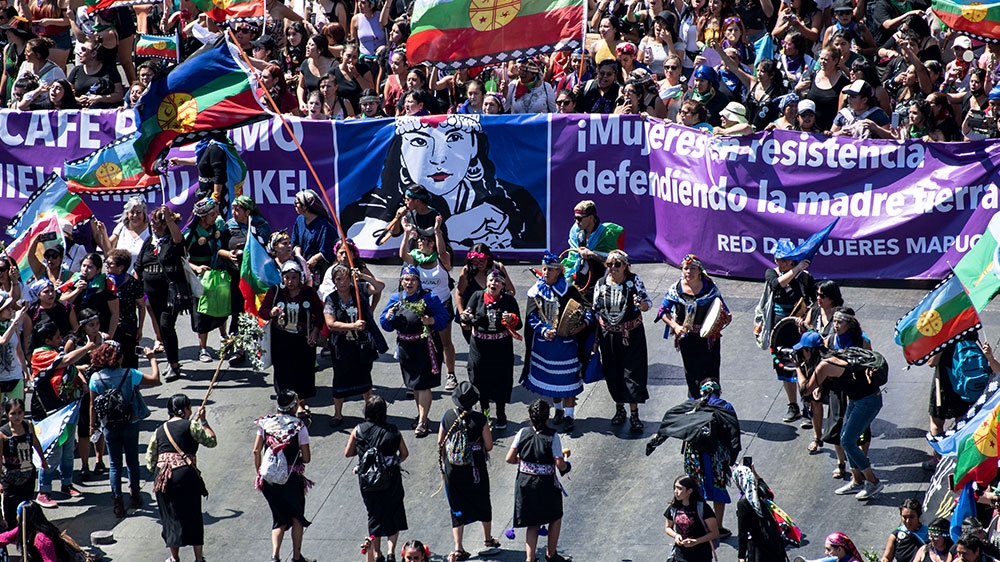
Mexico
In Mexico, roughly 80,000 took to the streets to protest against femicide and a lack of legal action against perpetrators of gender-based violence. A huge rally marched to the public square, where protestors painted the names of all post-2016 femicide victims. Women marched and waved signs reading “We are the voice of those who are no longer with us”. Femicide cases have doubled in Mexico over the past five years, with over 3,000 cases being reported.
On average, more than 10 Mexican women are murdered each day, often by their male partners. According to government data, 3,825 women were brutally killed in 2019, with very few cases resulting in convictions.
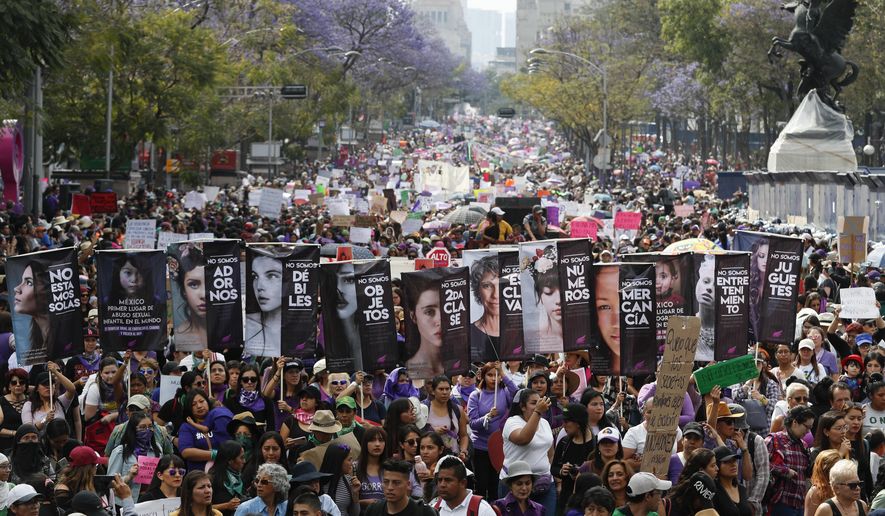
Image Source: WFAE

